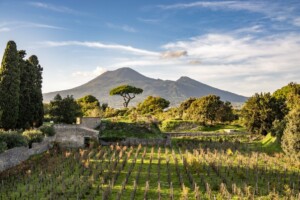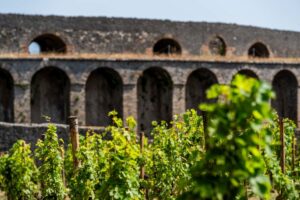Agriculture - in Italy, Europe, and worldwide - is a fundamental and vital sector for humanity, as well as for the economy and the stability of territories. However, it also faces many emergencies that sometimes become structural difficulties. One such challenge, in Italy but not only, concerns the enormous and complex issue of labor, from many points of view: availability of labor, safety, bureaucracy, illegal hiring, labor costs, and so on, as also emerged in a recent analysis in WineNews by Roberto Caponi, CEO of Confagricoltura. And now, on this front, there is important news on the Italian regulatory front: the “Work and Safety” decree law, approved yesterday by the Council of Ministers on the proposal of the Minister of Labor and Social Policies, Marina Elvira Calderone, includes the “Agriculture Package” promoted by the Minister of Agriculture, Francesco Lollobrigida, which, according to the Ministry itself, is “aimed at supporting virtuous agricultural businesses and strengthening the network of quality work”.
“The state must reward those who comply with the rules and invest in safety”, said Minister Lollobrigida. “It is a pact between institutions and agricultural businesses for growth based on legality, quality, and worker protection. Those who comply with the rules and put safety first must be given tangible recognition. We aim to start a virtuous cycle that makes compliance with regulations even more convenient and guarantees worker safety”.
Among the main changes is a reduction in INAIL contributions for agricultural businesses that have not received serious convictions or penalties in relation to safety. This is a concrete incentive for those who operate correctly, with the aim of reducing accidents and spreading a culture of prevention. The decree also provides for a reform of the ‘Quality Agricultural Work Network’, introducing stricter registration requirements, including full compliance by companies with health and safety regulations. Those who join this network will be given preferential treatment in INAIL tenders.
Finally, the decree, explains the Ministry of Agriculture, strengthens training and supervision in the field of safety, with new technological tools, information campaigns, and a strengthening of the National Labor Inspectorate and the Carabinieri Command for the protection of labor.
“We want to make quality of work a competitive advantage”, adds Lollobrigida. “Those who protect their employees must have more opportunities and less bureaucracy. This is a comprehensive initiative, developed in full synergy with the Minister of Labor, Marina Elvira Calderone, whom I thank, to protect those who work honestly, enhance the quality of Italian products, and make our agricultural system safer and more modern”.
This regulatory change has been welcomed by the main organizations in the sector. “The strengthening of the Quality Agricultural Work Network through reward systems for participating companies responds to our requests and represents an important step toward eliminating illegal hiring practices and promoting the work of the vast majority of virtuous agricultural companies”, says Coldiretti’s head of labor, Romano Magrini. “Now we need to complete the quality agricultural work network at the local level, giving a central role to bilateral agricultural bodies, which are also fundamental from the point of view of training to ensure safety in the workplace. With this in mind, we also need to invest in the modernization of machinery, further strengthening the Isi Inail call for proposals in terms of resources, and in training itself, creating a real awareness of risk starting in schools. There are over 185,000 companies that hire employees in agriculture, employing approximately 1 million workers for over 120 million working days, of which about one-third are workers from other countries, with Romanians, Indians, Moroccans, Albanians, and Senegalese at the top of the list of the most represented nationalities, according to Coldiretti.
Confagricoltura also expressed its satisfaction, applauding a measure that the organization "had been calling for for some time, in order to reduce accident prevention rates that were largely excessive both in relation to management performance and to accident trends, which have improved significantly over the last decade. All this is consistent with what has already been developed on the subject by INAIL. The introduction of a reward scheme for virtuous companies that comply with the rules and have no accidents is also positive. Palazzo della Valle has repeatedly highlighted the need for the primary sector to reduce the contribution burden on companies, starting with the revision of INAIL rates, which are too onerous compared to other productive sectors. The high tax and social security contributions burdening employees is one of the main critical issues in our country, creating serious difficulties for Italian companies when they are called upon to compete, increasingly often, at an international level. The measure approved today, Confagricoltura points out, does not diminish but, on the contrary, may contribute to further stimulating companies' commitment to safety. It is now desirable that these measures be promptly and fully implemented through the necessary provisions”. The “Agriculture Package” promoted by the Ministry headed by Lollobrigida and included in the “Work and Safety” Decree Law is a potentially far-reaching measure for the sector. It comes just a few days before the end of the first three years of the Meloni government, with the Ministry itself taking stock for WineNews, recalling some of the most important achievements and projects underway.
Italy reached a record €70 billion in agri-food exports in 2024 (and a record €8 billion in wine), with a 2% increase in added value in agriculture, forestry, and fishing, and a 10.4% increase in farmers’ income. Italy is now the leading economy in Europe in terms of added value in agriculture (€44.4 billion), surpassing France and Germany, according to the Ministry.
“The Meloni government has supported businesses in achieving these objectives with over €15 billion in three years for the Italian agri-food sector, a record in the history of the republic”, emphasizes the Ministry of Agriculture, which has also seen its spending capacity increase from 57% to 79% in two years. At a time when, working on the NRRP, the resources of this measure diverted to agriculture, explains the Ministry of Agriculture, have increased from €3.6 billion to €8.5 billion, with an additional €2 billion for supply chain contracts. But, speaking of resources, in recent months, the “Coltiva Italia” decree was also introduced, with a budget of over €1 billion for various measures (€300 million for the food sovereignty fund; €300 million for animal husbandry; €300 million for the olive sector; €150 million for generational change; €13.5 million for research; €10 million to mitigate market fluctuations, as well as 8,417 hectares of land available for free use).
However, in addition to economic measures, there are also many key points on issues such as quality and transparency that the Ministry advocates. From “decisive action during the approval of the European Regulation on GIs to defend and further enhance this dimension of excellence, with the introduction of stricter rules for the protection of geographical indications and, at the same time, the strengthening of the role of consortia in the field of food and wine tourism”. to the Agri-Food Bill, “currently under parliamentary review, which aims to reform the penalty system in the primary sector, with stricter measures for the protection of PDO and PGI products, and specific penalties against counterfeiting and misuse of trademarks, food fraud, and the trade in foods with false labels”. Furthermore, the Ministry points out that “the Italian experimental scheme on labeling the origin of raw materials for pasta, rice, tomatoes, processed pork, milk, and dairy products is also expected to be extended to 2026”. However, a fierce battle has also been fought, successfully to date, against “misleading labeling models for citizens, such as Nustriscore, which penalize typical products of the Mediterranean diet,” as well as “opposition to ideological attacks against wine and alarmist health labels”. with Italy, the Ministry notes, “was the first European country to ban synthetic food”.
Intense work has also been carried out on controls in the agri-food sector, to “defend the quality of Italian products” and to “combat the phenomenon of Italian Sounding, thanks to a rigorous system of controls and checks that has been strengthened with the establishment of a Control Room for administrative controls in the agri-food sector. In 2024, the Central Inspectorate for Quality Protection and Fraud Prevention of Agri-Food Products (ICQRF) carried out over 54,800 controls, according to the Ministry. Most of these concerned PDO, PGI, and organic products.
In addition, “controls against unfair commercial practices in relations between companies in the agricultural and food supply chain have been strengthened. Combating unfair commercial practices means defending fairness, the dignity of agricultural work, and the sustainability of the Italian agri-food system. When those in a position of strength impose unbalanced or unfair conditions on the weaker party, such as selling below production costs or paying after the terms, the proper functioning of our supply chains is undermined. The Agriculture Decree Law has extended the provisions on unfair practices to wholesale markets and introduced the definition of average production cost calculated by Ismea”.
There was also a commitment to “support agricultural innovation, with investments to increase mechanization in the sector and the use of technologies capable of improving production capacity and reducing waste. With over 23,000 companies supported in renewable energy production, and €700 million invested in innovation in 14,000 agricultural businesses”.
The Meloni government, the Ministry of Agriculture recalls, “has authorized field trials of TEAs until December 31, 2025 (already underway on vines and rice, with the latter also being harvested for the first time) and has allocated €9 million to CREA in the 2025 Budget Law”. But much has been done, also in terms of communication, to promote Italian cuisine and food and wine culture. One of the focal points, of course, is the nomination of Italian cuisine as UNESCO Intangible Cultural Heritage, the outcome of which is expected at the end of December, and which has also become an integral part of the initiatives to promote and spread Made in Italy that accompanied the Amerigo Vespucci's tour around the world. Furthermore, with the “Massari Law”, the prestigious “Master of the Art of Italian Cuisine’ award was established”. The award was given to Iginio Massari for the art of pastry making, Carlotta Fabbri for the art of ice cream making, Franco Pepe for the art of pizza making, Carlo Petrini for the art of gastronomy, Piercristiano Brazzale for the art of cheese making, Maria Francesca Di Martino for the art of olive growing, Riccardo Cotarella for the art of winemaking, and Massimo Bottura for the art of cooking”, emphasizes the Ministry, which also recalls the creation of the “Fund for Excellence”: “76 million euros to promote those who work every day to keep the flag of Made in Italy flying high”.
But the Ministry also claims credit for its many interventions on the wine front. Looking back, in fact, “on August 4, Minister Lollobrigida convened the Wine Roundtable at Palazzo Chigi to respond to requests raised by the wine industry and address issues affecting the sector, with the participation of Prime Minister Giorgia Meloni. Thanks to the Italian government's continued strong support for the wine sector, the Ministry explains, European resources for the promotion of agri-food products have been confirmed for 2025, totaling €132 million, thus averting the penalization of wine and red meat. On May 15, the new call for proposals for the promotion of wines on third-country markets was published, with a budget of €98 million, introducing elements for simplification and to better respond to the needs of the wine sector”.
Furthermore, the Ministry points out that the “new label produced by the Italian State Printing Works and Mint featuring the Italian flag has arrived, allowing for immediate identification and recognition of products made in Italy,” and a new Wine Committee has also been appointed (led by Michele Zanardo, ed.).
But Italy's wine industry has also enjoyed great international visibility at an institutional level in recent years: “on the centenary of the International Organisation of Vine and Wine (OIV), in 2024 Italy hosted the OIV's first International Wine Conference, the “Wine Ministerial Meeting”, in Franciacorta. At Vinitaly 2025, we had speeches by European Commissioner for Agriculture Christophe Hansen - who had already participated in “Agricoltura È” - and European Commissioner for Health Olivér Várhelyi, who emphasized their support for the wine sector and the importance of avoiding any form of demonization of wine”, recalls the Ministry, which also points out that “with the G7 Agriculture meeting in Syracuse (in September 2024), food sovereignty was at the center of the global political agenda.
“DiviNazione Expo” celebrated Italian agri-food excellence. Among the many wine-related initiatives, it is worth mentioning the grand arrival of art at Vinitaly, in the spaces of the Ministry of Agriculture, starting in 2023, with works by Caravaggio and Guido Reni (which we documented in this video), then in 2024 with the exhibition “Wine. Between Myth and Culture”, with 34 works from Muvit, the Wine Museum of Torgiano, and other museums (which we reported on here), and in 2025 with “The Reason Wine”, an interactive exhibition with ancient and other works, to explain the reasons for the success of Italian wine, in synergy with the Ministry of Culture.
These are just some of the many small and large milestones along the path taken by Minister Francesco Lollobrigida at the helm of Italian agriculture, which continues in a very difficult and uncertain global scenario, amid wars, inflation, tariffs, and more. There is still much work to be done and many challenges to be faced for one of the sectors most closely associated with Italy's identity, with the country among the world leaders, especially when it comes to quality.
Copyright © 2000/2026
Contatti: info@winenews.it
Seguici anche su Twitter: @WineNewsIt
Seguici anche su Facebook: @winenewsit
Questo articolo è tratto dall'archivio di WineNews - Tutti i diritti riservati - Copyright © 2000/2026
























































































































































































